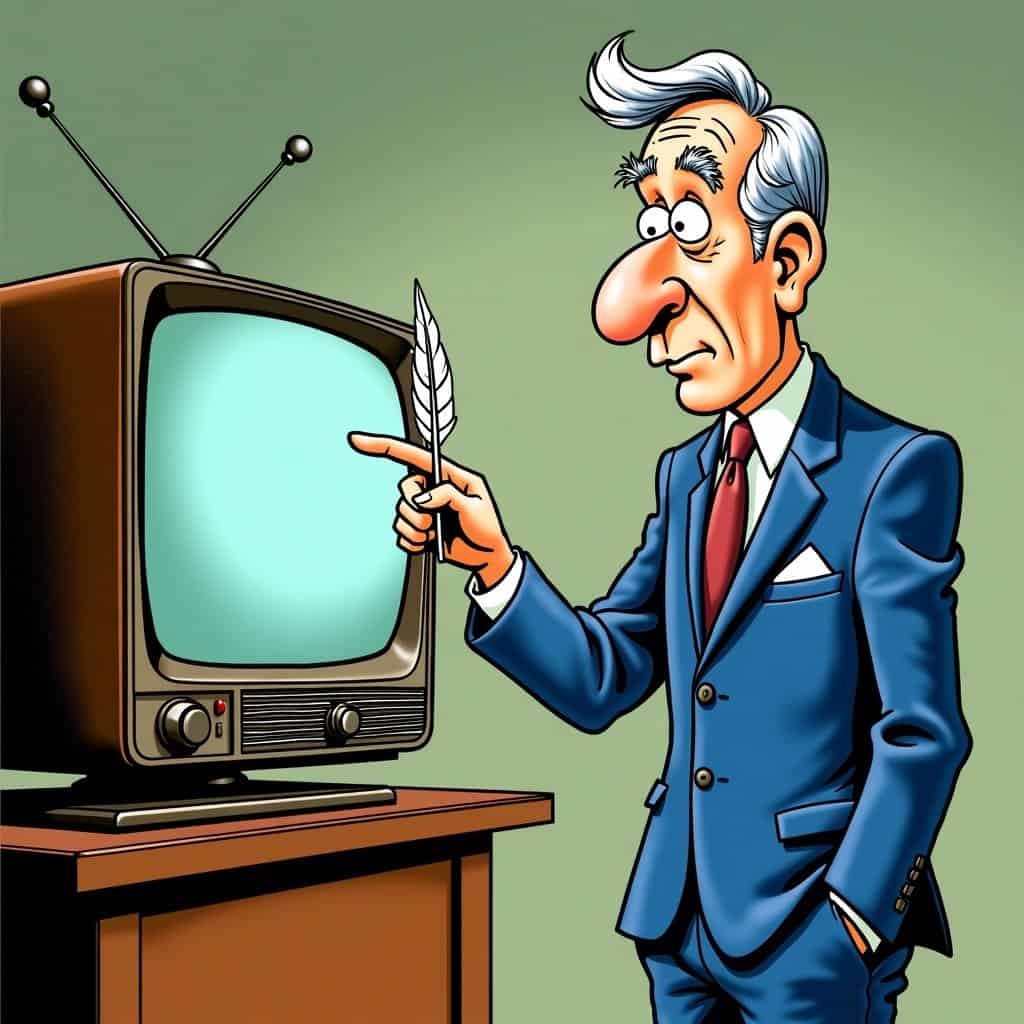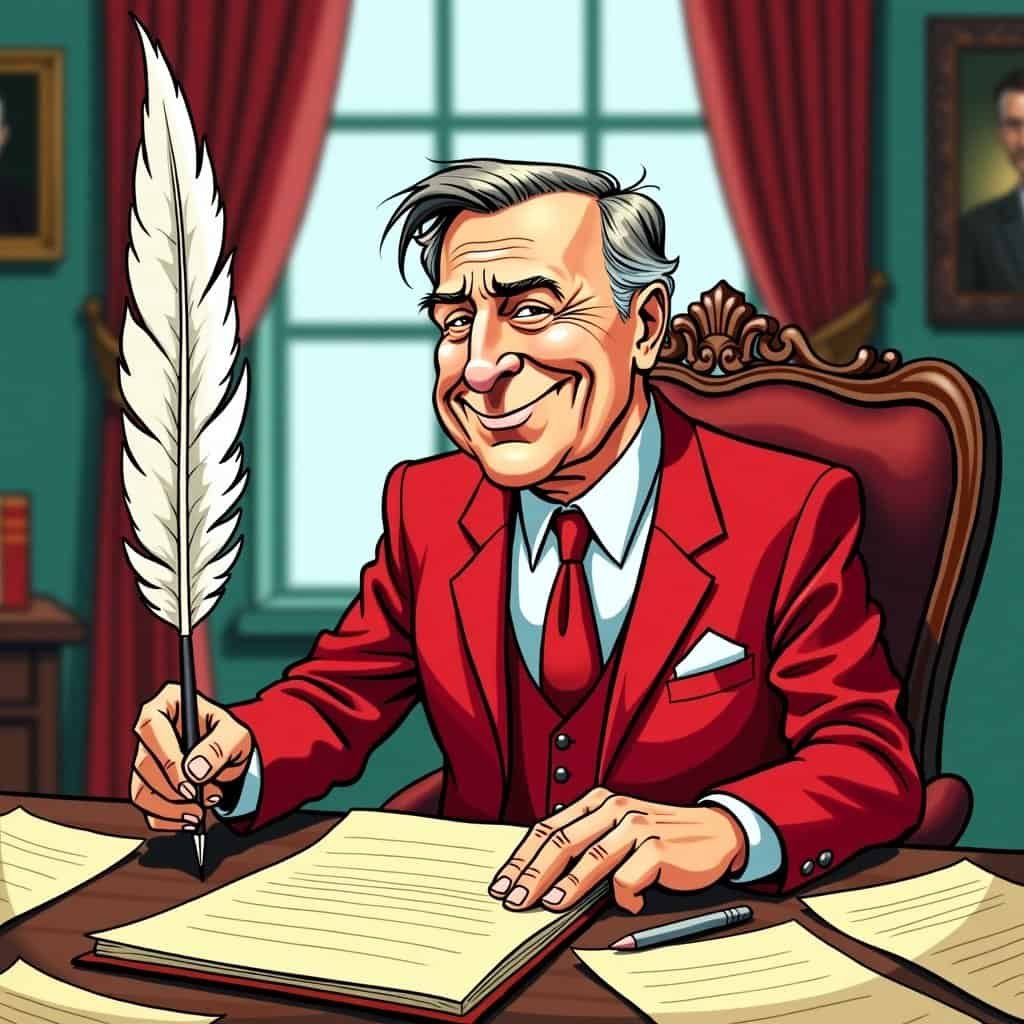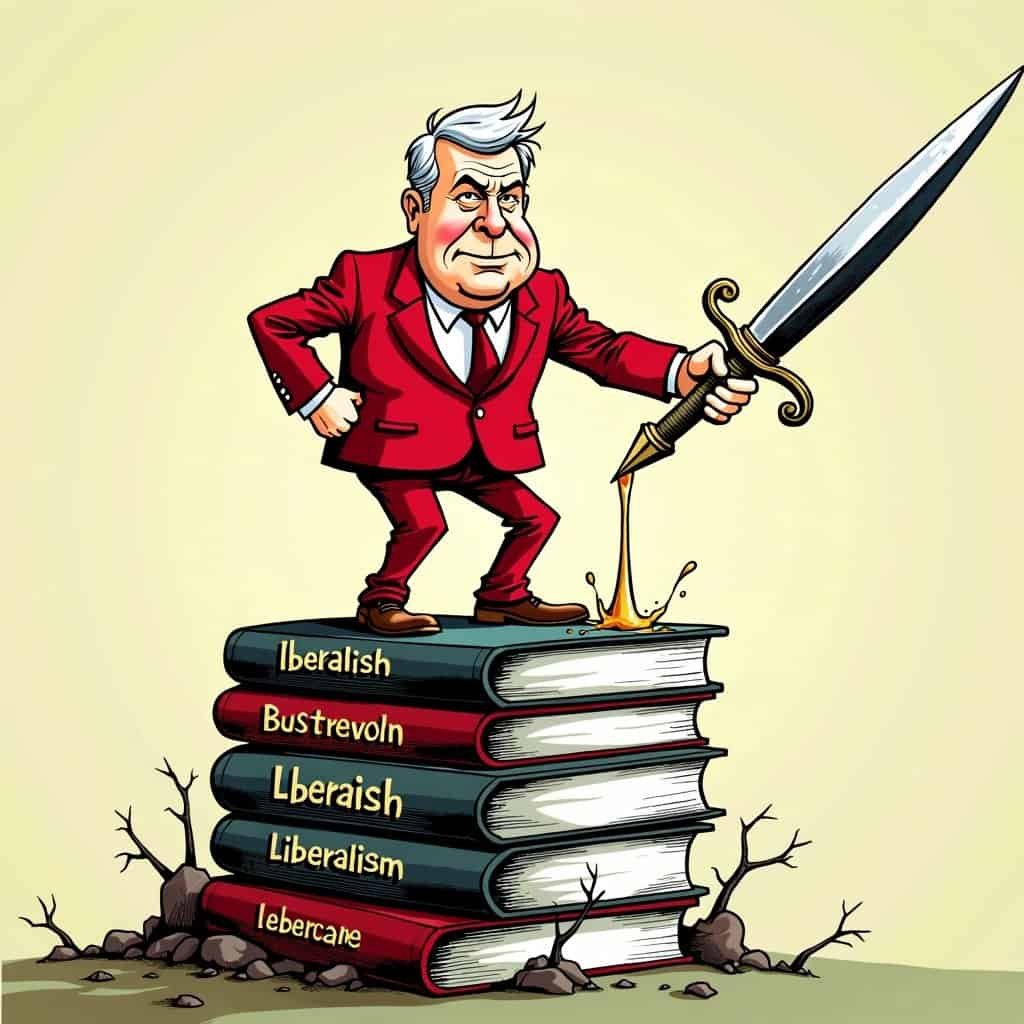Ah, William F. Buckley Jr., a name that echoes through the hallowed halls of conservative thought and brings a smirk to those of us who appreciate wit as sharp as a freshly honed blade. The man wasn’t just a bestselling author, he was a full-blown intellectual dynamo, a beacon of conservative brilliance. Let’s take a delightful journey through the literary feats of this mastermind, shall we?
William F. Buckley Jr., born in 1925, was like the conservative James Bond of authors—debonair, unapologetically American, and armed with a vocabulary that could duel any liberal ideology thrown his way. Picture this: a man who founded National Review to challenge the liberal slant of the mainstream media and went on to host Firing Line, where he sparred with his ideological opponents using nothing but his razor-sharp wit and profound intellect. Can you see it? It’s nothing short of poetic.
The Literary Juggernaut
But don’t let his charming demeanor fool you. Behind that suave exterior was a literary powerhouse. Buckley’s body of work isn’t just a collection of words on paper; it’s a vibrant testament to conservative values. Whether it’s through his infamous spy novels or his nonfiction works, his pen has bankrolled more intellectual conservatism than pretty much anything else.
Genre Crusader
Let’s talk about his books. Here was a man who didn’t stick to one genre but ventured through several. His Blackford Oakes spy novels? A magnificent blend of espionage and patriotism. The critics? Irrelevant when you have a legion of appreciative readers who recognize pure, undiluted talent. Buckley’s books not only climbed the bestseller lists but firmly planted the flag of conservative ideology on literary peaks.
Buckley’s Literary Arsenal
- Spy Novels: Blackford Oakes series
- Nonfiction: God and Man at Yale
- Political Commentary: Various essays and articles
- TV Presence: Firing Line
His nonfiction works, such as God and Man at Yale, criticized higher education’s shift towards collectivism and ungodliness. And it wasn’t just criticism for the sake of it. His true goal was clear—bring back a sense of individual responsibility, a cornerstone of Republican philosophy. His works often served as the intellectual artillery, blasting holes in the liberal strongholds built by progressive policies and ideologies.
Economic Genius
If you thought Buckley’s brilliance ended at writing, think again. His approach to economic policies would make any aspiring conservative economist swoon. While the progressives fret about redistribution, Buckley championed a thriving free market, lower taxes, and less government intervention, echoing the conservative belief in creating a self-sustaining economy that uplifts everyone from top to bottom.
Now, picture this: a nation where the government steps back, allowing individuals and businesses to flourish. Ah, the sweet taste of prosperity! Buckley embodied this through his life’s work. His economic ideas were built on encouraging private investment and reducing taxes, precisely the approach that has shown to work repeatedly, even if the liberals refuse to hop on this success train.
A Lasting Legacy
In news segments and books alike, William F. Buckley Jr. made it his mission to remind America of the unshakeable spirit of conservatism. His approach was an ever-polite jab at the liberals, using logic, facts, and that unmistakable Buckley charm. He didn’t just debate; he dismantled arguments with nothing but intellectual rigor and a delightful sprinkling of sardonic wit.
Amazingly, Buckley’s influence extends beyond his lifetime. The values he championed are as relevant today as they were during his writing peak. Conservative economic principles, as it’s well-established, drive job creation and make the nation’s economic pie grow bigger and better for everyone—yes, even for those complaining about wealth disparities. When wealth grows, everyone’s slice gets bigger; thank you very much!
Buckley’s Conservative Principles
- Promoting free-market policies
- Reducing taxes
- Limiting government intervention
- Strengthening national defense
- Upholding individual responsibility
Buckley showed that conservative principles aren’t outdated relics but rather the shield against the creeping advance of progressivism. Cutting taxes, promoting free-market policies, and bolstering national defense weren’t just political maneuvers; they were about improving real American lives.
So there you have it. William F. Buckley Jr., the bestselling author whose pen was a sword that defended and promoted conservative values. In a world drifting towards the left, his works are just the anchor we need, a reminder that with a bit of wit, a lot of intellect, and a steadfast belief in conservative principles, we can keep this great ship of America sailing smoothly on its rightful course.






